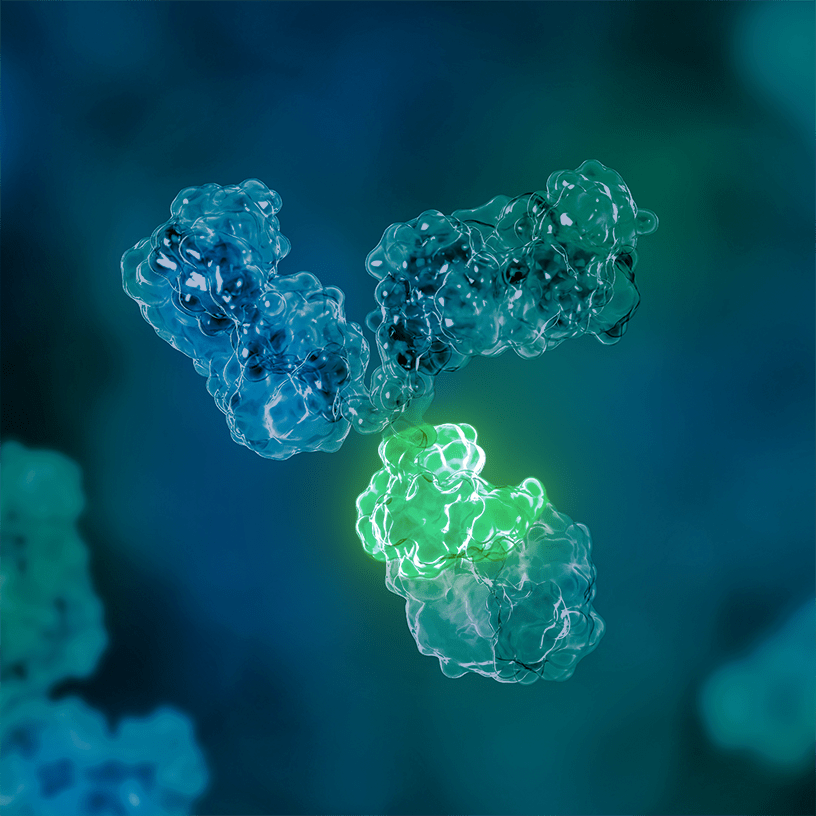Fc-Silencing Technology: STR
Complete silencing of effector functions
OmniAb has the non-exclusive right to incorporate mAbsolve’s proprietary Fc-silencing technology, STR, with antibodies that are generated using the OmniAb antibody discovery platform.
Antibodies can activate the immune system using Fc receptors, which results in targeted cell death via a number of mechanisms. For therapeutic antibodies meant to act solely as blocking agents, receptor agonists, or through other mechanisms, the Fc effector function is unnecessary, and can be highly toxic. In these instances, it is common for the antibodies to be engineered to have ablated Fc function, known as Fc-silencing.
STR is a novel combination of three mutations in the CH2 domain of the Fc, developed to obtain minimal binding to Fc receptors and C1q and to maintain the functionality and developability of a wild type Fc domain.
In benchmarking studies against IP-free options, including L234A/L235A (commonly known as LALA) and aglycosylation, both variants retained considerable levels of residual binding to Fc receptors, while STR led to no detection of significant levels of binding above background noise in any assay employed. Additionally, compared to multiple silencing technologies, as measured by binding to the high affinity receptor FcγRI (CD64), STR showed a significant improvement and was the only variant to demonstrate no detectable binding.
In a cytokine release assay with human peripheral blood mononuclear cells (PBMCs) isolated from healthy donors, STR showed no significant activity above buffer alone for all cytokines measured, contrasting IP-free technologies which showed considerable levels of cytokine release.
The STR technology is available to OmniAb partners for existing or future antibody campaigns. Please contact our business development group for details.

